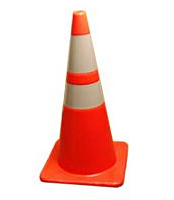
 Over the past two days, we have covered some of the great aspects of a teacher’s job. Some of those would be wonderful if we could blend them into our own jobs (sabbaticals, teaching others, and student teaching), because they would help us to work better overall. Today, we are going to see one of the problems with the teaching industry that needs to be solved.
Over the past two days, we have covered some of the great aspects of a teacher’s job. Some of those would be wonderful if we could blend them into our own jobs (sabbaticals, teaching others, and student teaching), because they would help us to work better overall. Today, we are going to see one of the problems with the teaching industry that needs to be solved.
When you started your job, I’m willing to bet that you worked your tail off. As time went on, your performance may have stabilized some, but you always try (successfully or not) to keep it above the “You’re fired!” level. The association of bad performance and termination is an easy one to make, and it doesn’t take much prodding for you to see that you have to do well or you get canned. What if that fear wasn’t there? Can you honestly say that you would perform better if you weren’t held accountable for your work results? As for myself, I know for sure that I would spend a lot more time playing on Facebook at work and less time wondering about my job.
In case you haven’t picked up on it yet, I’m talking about tenure. The tenure system is supposed to keep a teacher’s job “safe,” but let’s look at how that affects the dynamics of the teaching profession. Terminations in the workplace are nearly always viewed as a negative action. However, if a known child molester is teaching your kids, would you rather them continue or be terminated? If a certain teacher is consistently skipping class and not performing his/her job duties, why should they have special protections from termination that encourage these behaviors?
That takes care of the flow out of the employee pool, but what about the influx of new workers? Even if a teacher performs exemplary work and teaches better than anyone else in the school, he/she may still lose the job at the end of the school year, because all available slots are full of tenured personnel. And even if that fantastic educator makes it into the next work year by some stroke of luck, the next year will bring the same dread as before. In a tenure system, performance matters much less than other things like knowing the right people and diligent brown nosing. Check out this flowchart. It is an amazing thing to behold. Another chilling statistic is this:
Between 1995 and 2005, only 112 Los Angeles tenured teachers faced termination — eleven per year — out of 43,000. And that’s in a school district whose 2003 graduation rate was just 51 percent.
If performance matters, it’s certainly not high on the list of qualifications!
I would hate to know that my workplace was implementing a tenure system. Once people are “safe,” they tend to quit working so hard. In fact, one reason (among many) so many entrepreneurs are so successful is because they never feel safe, and therefore work themselves very, very hard for a long time (often leading to piles of cash). Would you like to work in a tenure system? If you currently work in one, do you like it or not?
Before we get any crazy emails or comments, let me remind you that I spend at least an hour every weekday at a school. That’s more than most parents with kids actually in the school! I have studied the workplace and work policies, and I still have no idea why we have the tenure system (other than the fact that it’s a favorite tool of the teacher’s unions). As with other controversial subjects, we welcome well thought-out comments and questions and would love to hear what you have to say. With that in mind—bring on the comments!
Leave a Reply